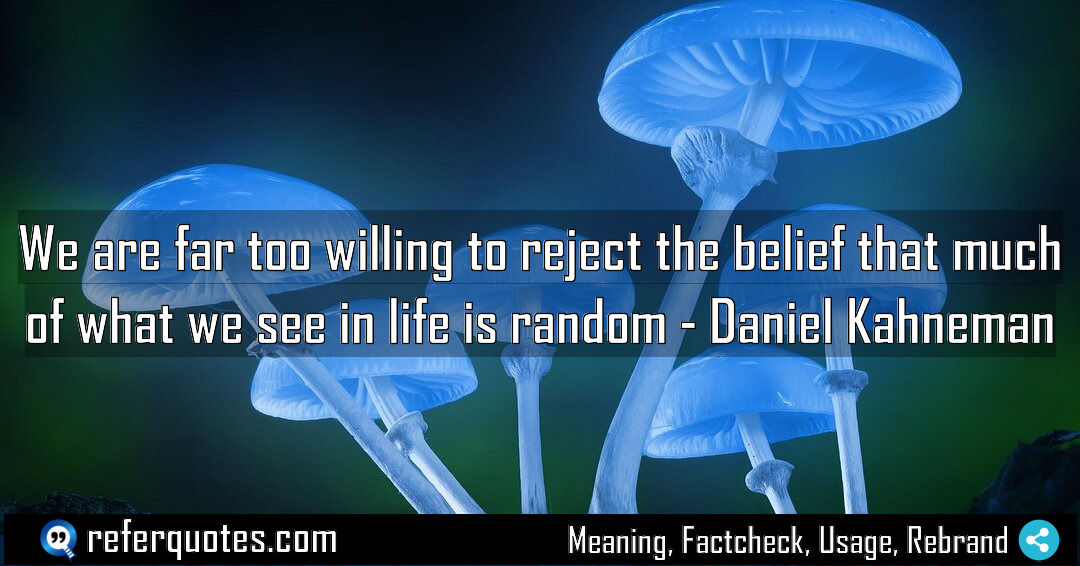We are far too willing to reject the belief… and it costs us. Kahneman nails a fundamental flaw in our wiring—we’d rather invent a story than accept randomness. Let’s break down why this insight is so powerful.
Share Image Quote:Table of Contents
Meaning
At its core, this quote means we have a deep-seated aversion to chaos. Our brains are wired to find patterns and causes, even when none exist. We reject randomness because it feels like an admission of a lack of control.
Explanation
Let me tell you, seeing this play out in the real world is something else. We are narrative creatures. We crave a story. So when something good or bad happens, we instinctively look for a reason. The startup that succeeded because of their “genius” culture? Might have just been lucky timing. The project that failed because of one “bad” decision? Could have just been a random market shift.
Our minds refuse the null hypothesis. It’s uncomfortable. It’s messy. So we impose order. We create a cause-and-effect story that makes sense, that fits our worldview, and that makes us feel like we’re in the driver’s seat. It’s an illusion, but a very, very persuasive one.
Quote Summary
| Context | Attributes |
|---|---|
| Original Language | English (3668) |
| Category | Wisdom (385) |
| Topics | bias (25), illusion (22) |
| Literary Style | clear (348) |
| Emotion / Mood | contemplative (8) |
| Overall Quote Score | 81 (258) |
Origin & Factcheck
This is straight from Daniel Kahneman’s 2011 magnum opus, Thinking, Fast and Slow. It came out of his decades of research, primarily in the US and Israel, on cognitive biases. You sometimes see this idea misattributed to other behavioral economists like Richard Thaler, but the specific phrasing and the deep dive into the psychology behind it is pure Kahneman.
Attribution Summary
| Context | Attributes |
|---|---|
| Author | Daniel Kahneman (54) |
| Source Type | Book (4032) |
| Source/Book Name | Thinking, Fast and Slow (54) |
| Origin Timeperiod | 21st Century (1892) |
| Original Language | English (3668) |
| Authenticity | Verified (4032) |
Author Bio
Dr Daniel Kahneman transformed how we think about thinking. Trained in Israel and at UC Berkeley, he built a career spanning Hebrew University, UBC, UC Berkeley, and Princeton. His partnership with Amos Tversky produced prospect theory and the heuristics-and-biases program, culminating in the Nobel Prize in Economic Sciences. He engaged broad audiences through bestselling books and practical frameworks for better decisions. He continued writing and advising late into life, leaving ideas that shape economics, policy, medicine, and management. If you want to dive deeper, start with the Dr Daniel Kahneman book list and explore his enduring insights.
| Official Website
Where is this quotation located?
| Quotation | We are far too willing to reject the belief that much of what we see in life is random |
| Book Details | Publication Year: 2011; ISBN: 9780374275631; Latest Edition: Farrar, Straus and Giroux, 2013; Number of pages: 499. |
| Where is it? | Part II: Heuristics and Biases, Chapter 10: The Law of Small Numbers, Approximate page 196 (2013 edition) |
